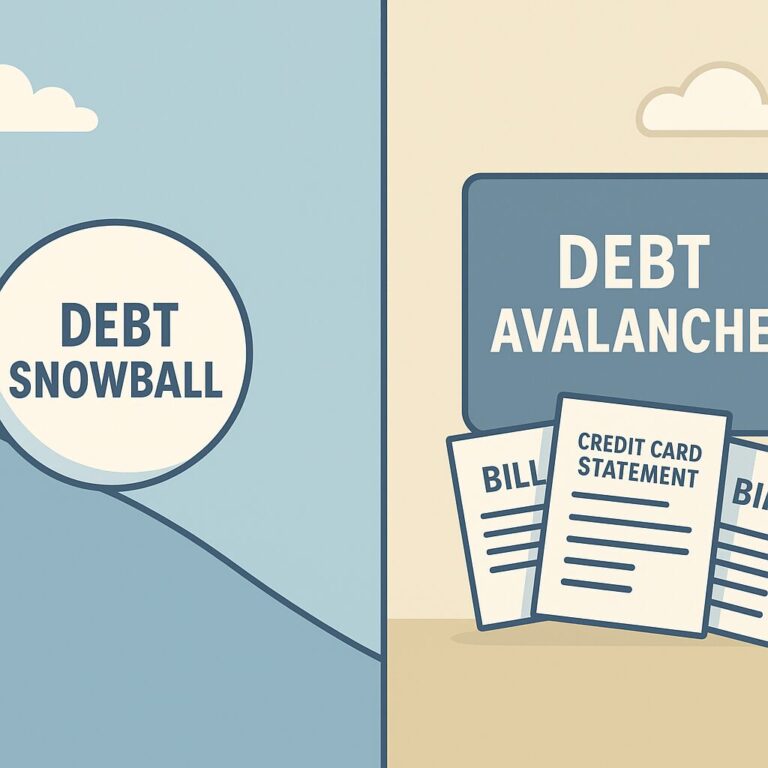Debt Repayment: How to Regain Control One Step at a Time
Debt can feel like a constant weight — every bill, every statement, every reminder of what you owe adding pressure to your mind and your budget. But here’s the truth: debt isn’t a life sentence. It’s a financial situation that can be reversed with clarity, structure, and discipline.
You don’t have to be perfect. You just have to start. Let’s walk through how to take back control — one step at a time.
Step 1: Know What You Owe
You can’t fix what you can’t see. Begin by listing every debt you have — credit cards, personal loans, buy-now-pay-later plans, medical bills, even small balances you’ve ignored.
Next to each, write the total balance and interest rate (APR). This single act transforms anxiety into awareness. Once you see the numbers clearly, the fog lifts — and the plan begins to take shape.
Finally, rank your debts from highest to lowest interest. This gives you a blueprint for where your money should go first.
Step 2: Build a Starter Emergency Fund
Before you start aggressively paying down debt, protect yourself from new debt. Save $500–$1,000 in a small emergency fund. This fund acts as a pressure valve — when life throws a curveball, you won’t have to swipe a card to deal with it.
Keep it separate from your main checking account. It should be easy to access, but not so convenient that you’re tempted to dip into it for non-emergencies.
Step 3: Pick a Payoff Method That Fits Your Mindset
The Avalanche Method (Math-Focused)
Pay off the highest interest debt first while making minimum payments on the rest. This saves the most money in interest over time. It’s the efficient, numbers-driven approach.
The Snowball Method (Motivation-Focused)
Pay off the smallest balance first. Those early wins give you momentum and motivation — the feeling of progress is powerful fuel.
The Hybrid Strategy
Start with a snowball for emotional momentum, then switch to the avalanche once your confidence is solid. Remember: discipline is built through consistency, not intensity.
Step 4: Cut Leaks and Redirect the Flow
- Cancel or downgrade unused subscriptions.
- Call your phone or internet provider and ask for a better rate.
- Bring lunch three days a week instead of five.
Each small adjustment adds up. The trick is to redirect those savings immediately toward your debt — ideally through automation. Set your extra payment to go out the day after payday, before lifestyle creep can grab it.
Step 5: Increase Income Without Burning Out
- Deliveries or gig work
- Occasional overtime
- Freelance or part-time projects
- Selling unused items
Every extra dollar should go straight to your highest-priority debt. Don’t reward yourself yet — your freedom is the real prize.
Step 6: Track Progress and Celebrate Milestones
Debt repayment is a long game. Keeping motivation alive matters.
Use a visual debt thermometer, spreadsheet, or app to track balances. Each milestone — even the smallest one — deserves a moment of acknowledgment. Burn a paid-off statement. Mark it in bold. Discipline grows through ritual, and ritual turns effort into habit.
Step 7: Stay Free Once You’re Free
Debt freedom is a door — not a finish line. Once you’ve walked through, you’ll want to stay there.
Keep one month’s expenses in your checking account, three to six months in savings, and use credit only when it serves you — for rewards or protection, never for lifestyle.
Financial discipline isn’t about restriction; it’s about peace. When you no longer owe anyone, every dollar becomes a decision — and every decision builds wealth.
Final Thoughts: Getting out of debt takes courage, not luck. You’ll stumble, you’ll adjust, and you’ll grow stronger in the process. Each payment is a small act of rebellion against chaos — a declaration that your life belongs to you, not your lender. You’re not just paying off balances. You’re rebuilding freedom.
To explore this concept further, visit our main debt page.
Take Back Your Financial Freedom
Download our Free Debt Repayment Tracker Template to plan, track, and crush your debts one at a time.



